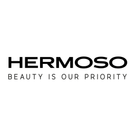Living in the UAE means enjoying abundant sunshine year-round. However, with high UV levels comes the responsibility of protecting your skin from harmful rays. Whether you’re walking outside or driving around the city, the sun’s rays can cause premature aging, skin damage, and even skin cancer. To maintain healthy skin, it’s essential to choose the right sunscreen in the UAE. Here's how to find the best sunscreen for your skin type and why SPF protection should be a part of your daily routine.
Why Sunscreen is Essential in the UAE

With the UAE's intense heat and long hours of sunlight, the risk of skin damage from UV rays is much higher than in cooler climates. UVA rays can penetrate deep into the skin, leading to premature aging, while UVB rays cause burns. Long-term exposure without the right protection can result in skin cancer. Sunscreen isn’t just a summer staple; in the UAE, it’s necessary all year.
The best defense is broad-spectrum sunscreen that shields against both UVA and UVB rays. Regular use helps prevent sunburn, skin discoloration, and visible signs of aging like wrinkles and dark spots. So, regardless of whether you're heading to the beach or going for a quick walk, sunscreen should be a part of your skincare routine.
How to Determine Your Skin Type
Choosing the right sunscreen begins with knowing your skin type. Here’s how to identify yours:
- Oily Skin: Produces excess oil, leading to shine and potential breakouts.
- Dry Skin: Feels tight, flaky, or rough, especially in cooler environments.
- Combination Skin: Tends to be oily in the T-zone (forehead, nose, and chin) and dry in other areas.
- Sensitive Skin: Prone to irritation, redness, and allergic reactions.
Best Sunscreens for Different Skin Types
Depending on your skin type, you’ll want to choose a sunscreen that suits your specific needs. Here are the best sunscreens for UAE residents based on skin type:
1. Oily Skin
- Key Features: Lightweight, oil-free, mattifying formulas.
- Recommended Products: Look for gel-based or mineral sunscreens that don’t clog pores.
- Example: Neutrogena Clear Face Oil-Free Sunscreen SPF 55.
2. Dry Skin
- Key Features: Moisturizing, with hydrating ingredients like glycerin or hyaluronic acid.
- Recommended Products: Cream-based sunscreens that offer added moisture.
- Example: La Roche-Posay Anthelios Melt-in Milk SPF 60.
3. Combination Skin
- Key Features: Non-greasy, hydrating but not overly heavy.
- Recommended Products: Sunscreens that balance hydration without making oily areas worse.
- Example: Aveeno Positively Radiant Daily Moisturizer with SPF 30.
4. Sensitive Skin
- Key Features: Fragrance-free, mineral-based sunscreens to avoid irritation.
- Recommended Products: Sunscreens with zinc oxide or titanium dioxide.
Example: CeraVe Hydrating Mineral Sunscreen SPF 30.
Tips for Applying Sunscreen Correctly

Even the best sunscreen won’t protect you if not applied properly. Here are some sun care tips to ensure you're getting the most out of your SPF:
- Apply enough: Most people don’t apply enough sunscreen. You need about a shot glass worth for your body.
- Reapply frequently: Reapply every two hours, especially after swimming or sweating.
- Don’t forget sensitive areas: Ears, neck, and hands are often missed but are highly susceptible to UV damage.
- Use separate sunscreens for face and body: Facial sunscreens are typically less oily and better suited for the delicate skin on the face.









